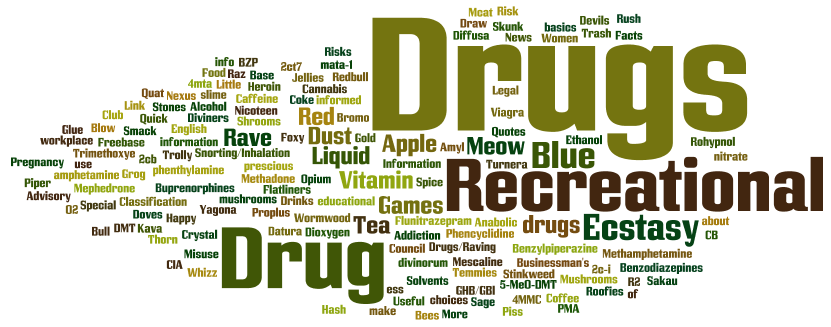An article from the papers today talking about the dark side of Ibiza and its changing drugs culture and seedier side which is worth a read...
A crowded dancefloor is hemmed in by multiple VIP areas. Topless men with flawless physiques perform camp manoeuvres on a stage. As Ibiza's flagship club, Pacha, celebrated its 40th year of existence, its denizens were in party mood last week.
Built in 1973 on former wasteland, a place that started life as an all-night cosy party venue attended by friends, hippies and locals has become the venue of choice for those with deep pockets. Entry can be as much as €100 (£85), or €440 for a VIP table, "mixer" drinks are around €20 and a bottle of water costs €12. But for those able to afford it, all the fabled glamour of Ibiza is here.
Outside it is something of a different story. For all the hands-in-the-air moments, this ever-popular hedonistic island has a dark side that is getting darker. Ibiza is now operating at two different speeds. On the streets of San Antonio, "looky looky" men loiter and ask people if they want to buy sunglasses, and then ask if they want drugs.
"I've seen English dealers running after them at the end of the season when they don't pay their debts," said Peter Nee, Privilege club PR manager. "The police chase them on their bikes sometimes, but it's all cat and mouse."
Following the arrest in Peru of Michaella McCollum Connolly, 20, from Co Tyrone, and Melissa Reid, 19, from Lenzie, near Glasgow, who were stopped at Lima airport for allegedly smuggling £1.5m of cocaine, Ibiza's drug culture is in the headlines again.
Like hundreds of others, Connolly and Reid had spent the summer working in clubs and bars on the island, where the lure of illicit substances, to consume or sell, is constant.
In the early days, there was a "happy" drug culture of marijuana, then LSD in the 1970s and ecstasy in the 1990s. Now, people opt for ketamine, GHB and cocaine.
Given the high prices in clubs such as Pacha, some succumb to the lavish lifestyle by dealing drugs; others fall into a pattern of free parties at villas and on yachts, sometimes thrown by dubious hosts. Many avoid overpriced drinks altogether, taking drugs as a far cheaper alternative.
This young summer workforce, employed as dancers, flyer distributors, waiters and hospitality staff, earn just about enough to live. The Spanish landlords of the cramped apartments, where two or three people share a room, charge them around half their monthly pay. There is hot competition for each job and a constant tussle to get the bar and restaurant owners to pay them the right amount, and on time. Fern Bowler, 20, from Guildford, Surrey, a waitress in San Antonio, said she could see how people can fall into the Ibiza drug culture.
"Dealing over here isn't like back home, it's normal," she said. "Doing ketamine would be frowned on in the UK, but here every Tom, Dick and Harry does it.
"They sell drugs behind the bars and some people even brought some over with them in protein tubs. Nothing is innocent here." Another worker, who has been here for five summers, agreed: "Workers on the island can easily fall into the wrong circles.
"It's not the first time someone on the island will have done this. When they look at those girls, people are saying: 'It could have been me'."
In July, a British mother of two drowned after going for a late-night swim in Ibiza having taken a cocktail of illegal drugs. Next day, her body was found washed up on the shore.
In recent weeks, Grant Weston, 24, from Pembroke, died after falling from a balcony following a night out with friends, and Michael Jordan Hill, 19, from Stockton-on-Tees, Co Durham, was seriously injured after falling from the fourth floor of a hotel.
But despite the seamier underside to life on the island, its reputation and prestige persist. More than 600,000 Brits went on holiday to Ibiza in 2012 and tour operators are reporting even higher booking levels this year. Clearly, though, something has been lost through the sheer commercial success of the Ibiza brand.
Terry Farley, co-founder of the record label Junior Boys Own, whose artists have included Underworld and the Chemical Brothers, has been going to the island since the early 1990s. He thinks the VIP culture of clubs such as Pacha has become a micro-climate of corporate brands and a world turned upside down by money: "The VIP culture has ruined the island for everyone – apart from investment bankers and drug dealers," he said.
Bill Brewster, co-author of Last Night a DJ Saved my Life, said: "It always had that element of celebrity, but it never felt like that; it felt like everybody dancing together in a cosmopolitan way.
"I do still enjoy it, but the purity of it all has been dissipated by the money. For me, it seems to be a bit of a cash cow for British promoters to fleece gullible clubbers of their money."
Though many former punters might agree with that assessment, there are more than enough new recruits to take their place. But after the events of last week, the high-roller side of the island has been overshadowed by the story unfolding in Peru.
The Spanish owner of the Amsterdam bar in San Antonio, where McCollum Connolly briefly worked, has lived in Ibiza for 40 years. He said drugs were ruining the island.
"It's run by an English mafia between Manchester and Liverpool, there were shootings between them a few years ago. Two people have died from drugs just in the last few weeks."
He added: "Ibiza destroys young people. It's paradise, but it's also hell."
